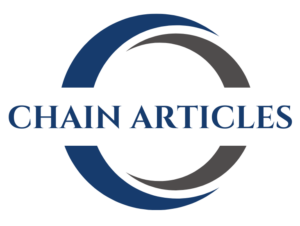In a recently circulating screenshot from a Discord server of a web3 project, Mass, also known as Massdotmoney, it shows that the Philippines is among five countries banned from the platform and was referred to as “vampires” of web3.
BitPinas reached out to Mass Founder and Chief Executive Officer (CEO) Rudy Kadoch, who explained the reason behind the decision.
KYC Ban
In the screenshot, a message from Kadoch stated that users from Nigeria, the Philippines, Indonesia, Pakistan, and Bangladesh were banned from completing the platform’s know-your-customer (KYC) process.
The justification given was that individuals from these countries “try every possible way to farm without spending a single dollar” and were labeled as the “vampires of web3—extremely toxic people.”
Consequently, Kadoch shared in an X post that they noticed a large number of airdrop farmers, primarily from Nigeria, the Philippines, and Bangladesh, who exploited Mass’ liquidity mining program by completing KYC without spending any money.
As a result, he stressed that KYC from these regions has been temporarily blocked.
“I want to reward real users, not people who are here just to extract value. I also do not want our metrics to be polluted by airdrop farmers. You would not see us post something like, ‘Mass now has 400K users.’ I just do not consider those people users.”
Rudy Kadoch, Founder and Chief Executive Officer, Mass
He also mentioned that Mass will remove the KYC quest and instead require users to either trade at least $200 worth of stocks or perform an on-ramp or off-ramp transaction of a similar amount.
What is Mass?
According to its documentation, Mass is a mobile platform designed to democratize access to decentralized finance (DeFi).
It claims to function as an all-in-one app where users can access various DeFi products like spot trading and perpetuals. The firm noted that using unique account abstraction technology, it removes the “usual complexities” of DeFi, allowing users to interact with different platforms through a single, user-friendly mobile interface.
The project aims to reimagine the mobile DeFi experience, making it as intuitive and comprehensive as modern centralized finance (CeFi) platforms.
Response from Mass CEO
In a response to Bitpinas’ inquiry, Kadoch clarified that while they hold no bias against any nationality, a recent KYC incentive program was abused by users from certain countries. Specifically, many Filipino users registered but did not deposit funds or engage with the platform, leading to financial losses.
“Listen, I have nothing against Filipinos, Nigerians, or any other nationality whatsoever! However, among all the Filipino users who registered on Mass over the past five days, not a single one has deposited funds or used the platform. We had launched a quest to incentivize users to complete KYC (in order to trade tokenized stocks), but it has been abused by farmers. It costs us money to validate each KYC—around $3 per person.”
Rudy Kadoch, Founder and Chief Executive Officer, Mass
To protect the platform’s sustainability, the company temporarily geo-blocked the top five countries linked to KYC farming, the CEO added. Thus, the decision was about safeguarding the platform, not discriminating against any group.
Kadoch then noted that non-KYC features remain accessible to all, and users from these countries will be able to complete KYC again once a revised system is in place.
“All features not requiring a KYC can be used by Filipinos, Nigerian etc. as these features do not cost us money. I can understand most people in these countries are very poor and seize any opportunity to make money. My role here is to protect the company.”
Rudy Kadoch, Founder and Chief Executive Officer, Mass
Filipinos as Legit Users
On the other hand, Derek Lau, the co-founder of web3 gaming platform Uncharted, recently highlighted that the Philippines is one of its biggest spenders.
“There is a misconception in crypto gaming that all the money comes from the western players whereas everyone else are ‘bots’ from developing countries. Some of our biggest spenders are from the Philippines and Vietnam.”
Derek Lau, Co-Founder, Uncharted
Last year, Fableborne founder Kam Punia also emphasized in an interview the Philippines’ vital role in the rise of mobile web3 gaming, noting that Filipino players are highly engaged in competitive, community-driven games and were a key part of the game’s organic growth during early playtests.
He stressed that Fableborne was intentionally designed to run on older Android devices to suit markets like the Philippines and challenged the stereotype of Filipinos as mere extractors. He asserted instead that they are valuable, passionate players who will spend, especially if given the right game experience.
In 2022, the Philippines ranked second globally in crypto ownership, with 22.7% of internet users holding digital assets, according to GWI. It also placed third in MetaMask users worldwide, driven by strong engagement in play-to-earn games like Axie Infinity and Pegaxy.
Last year, in the 2024 Chainalysis Global Crypto Adoption Index, the Philippines dropped to 8th place from 2nd place in 2022. Despite the decline, the report highlighted that the country remains active in CeFi and DeFi services.
This article is published on BitPinas: No Free Ride: Some PH Users Barred From Web3 Platform Over Airdrop Farming Concerns
What else is happening in Crypto Philippines and beyond?





